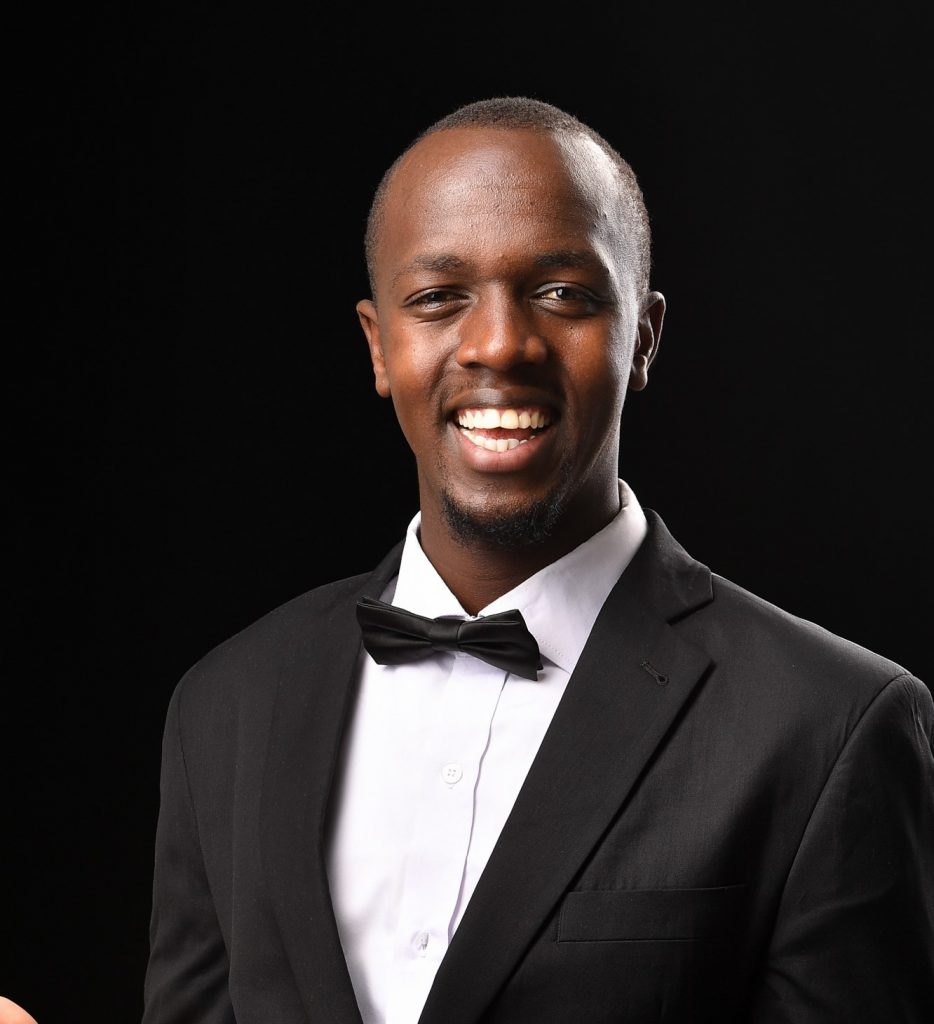How long does it take to succeed?
Why would anyone ask such a question? Everyone has their own path to success. Success means different things to different people. Therefore, there is no definite time to succeed. While it might be true that we might be on different journeys, we still judge a man in his thirties living with his parent, a woman in her fourties and not yet married. These are time-bound standards of success we hold up to other people and to ourselves, too. So how long should it take someone to succeed?
My generation has been termed the ‘microwave generation.’ We want things now. We are not cultured. We are not disciplined. And most of all, we are not patient. Being from the said generation, I often ask myself, why not have it all now? Why not succeed here and now? But the reality is that there is a process. So the question now becomes; how long should the process take?
The 10,000-hour rule
Malcolm Gladwell, in his book Outliers, popularised the concept of 10,000 hours. Malcolm posits that it takes 10,000 hours of deliberate practice to become an expert at one skill. This theory has a catch though. Actually two. One is, the practice has to be relevant and deliberate. Two, the expertise he refers to is the best of the best in the world. He, however, discounts talent. In his theory, talent is just an entry requirement. Getting to the top takes pure hard work and dedication. Something that Bill Gates affirms.
Bill Gates does not view the 10,000 hours as a single block. He thinks of them in stages. If you have the passion and talent for coding, you pass the entry-level. Bill Gates further explains that from there onward one’s resilience will be tested over and over. Only those fully committed and obsessed will survive, and succeed. In his explanations, he picks a number. 50 hours.
Assuming your resolve to pursue your commitment gets tested every 50 hours you will be tested approximately 200 times before you complete your 10000 hours. Those are 200 failure points that you have to overcome. This is why only a few people get to complete their 10,000 hours. As a result, only a few people (the one percent) get to participate at a global level.
But not everyone wants to participate at a global level. Most people just want a simple life, a decent career, a wonderful family, and financial stability. But as we shall see later, this too is not easy to achieve.
Professor Anders Erickson's discovery
Professor Anders Erickson, a researcher whose research Malcolm used to derive his discussion, noted that piano and violin students who would end up the best started earlier than anybody else. By the time they were 20 years old, they had over 10,000 hours’ worth of practice time. These students become the elite. The merely exemplary had over 8000 hours’ worth of practice time. Future music teachers had practiced around 4000 hours. Looks like most people just want to be music teachers.
To be the ‘music teacher’, on paper it might take you 4000 hours, but in reality, it will take much more. I posit that it will take you ten years.
Ten years seems to be the answer to the opening question, how long does it take to succeed? I believe (with evidence) that if you keep at it for roughly 10 years, you will get there.
Disclaimer: This is just an average. For some, it takes longer, and for others, it takes shorter.
Here is why I submit that it takes ten years to succeed
Looking at examples of famous people, the pattern starts to appear.
It took Alexander Fleming twenty years in the Bacteriology laboratory to discover penicillin. That might be a bit long. But it sets a baseline.
Alec Jeffreys, the guy who discovered fingerprints, was doing genetic research for ten years before he accidentally discovered the fingerprint. Although the discovery was accidental, were it not for his ten years’ worth of research, he would never have been able to make such an observation.
In 1895, Albert Einstein got the special relativity insight. It took him ten years’ worth of work to prove his theory. It wasn't until 1905 that his theory was proven and published.
Tim Berners, the inventor of the World Wide Web, made the first web-like computer (called Enquire) in 1980, but the World Wide Web came to life in 1990.
As if that is not enough, Mozart published his first composition in 1765, but his first masterpiece was published in 1777, 12 years later.
But just like the first example, Isaac Newton was an exception, but instead of taking longer, it took him a shorter period of time. He wrote the Annus Mirabilis between the years 1660 and 1665. The Annus Mirabilis is the foundation of Newtonian physics.
The first and last examples show the variation that can occur.
The role of solo practice
Worth to note in Newton's case is that, in the five years that he came up with his principles, he was in solitary study. Anders Erickson in his research noted that solo practice is more effective and can improve one’s performance tremendously. This is because one is in control of all moving parts in the practice setup.
But when it comes to team sports or activities that engage multiple people, one can be slowed down by compatriots. For instance, chess is a dual game. If one trains with other players, they might see significant improvement but never get to grand-master levels. Therefore if one wants to become a master in chess, they have to practice alone. This allows them to study moves, study opponents, create game-plays and strategies, which is very handy while playing chess. Therefore, playing with an opponent becomes just an act of measuring what you practiced, and taking notes.
Basketball legends Michael Jordan and Kobe Bryant have both confessed to skipping holidays to work on their skills individually. This sacrifice is what made them stand out.
Unfortunately, life is not a solo sport. We have so many moving parts that we are not in control of. This is what makes becoming a ‘music teacher’ difficult. Hence that which you could have done in four years will take you ten. The examples used above are of exceptional men today. But before their breakthroughs, they were just ordinary men going through their business. But through ten years of learning and transformation, their breakthrough came.
More study cases that prove the ten-year process
Our breakthroughs might never be televised, but they are breakthroughs nonetheless. A good personal example is my Dad. He cleared form four in 1992, but due to money constraints; he was not able to go to college. He opted to abandon his dream and work menial jobs to help educate his younger brother. Although time passed, he never let his dream of going to college die. In 2002 at the age of thirty, he was admitted to Thogoto Teachers College. This was his first breakthrough, exactly ten years later.
He went through college, came back with a certificate. He started tarmacking. Over the course of the following ten years, he got to work at several private schools. This was better than the menial jobs but he was still struggling.
His second breakthrough came in 2012, precisely ten years after his admission to Thogoto TTC. In 2012 he was absorbed by the TSC. This was big. Things at home changed for the better. He was even able to go back to school and pursue a degree, graduating in 2015.
Early this year, he gave me a call to tell me that he had been promoted to headmaster. I consider this his third breakthrough. This time it took nine years to succeed. How I pray for more breakthroughs for him.
What is happening within the ten years?
Personally, I could never have asked for a more conclusive case study of the ten years cycle. It takes ten years before one gets success, receives a breakthrough, or scores big. It takes ten years before one is taken to the next level. But the question for me and maybe my fellow Millenials is, what is happening within the ten years?
Let’s think it out using two scenarios. One, when you are pursuing financial independence. Two, when you want to achieve career success.
When pursuing financial independence
To get any money, you have to trade something. In this case, let’s take a skill that you were trained for.
It takes you four years to be trained in a given profession. Assuming things go well for you, you find an entry-level position that pays you just enough to cover your bills after school. You work for three years in this position, learning, gaining skills, understanding the politics of your career, and aligning yourself. After three years, you get a promotion. This boosts your cheque and now you have some disposable income.
You are wise, so you start investing. For these investments to grow to a level you can term yourself financially independent, it might take ten more years. Let’s do some quick math, four years in college, three years in entry-level, and four years before second promotion. That is a total of ten years before you are financially comfortable, then ten more years before you are financially independent.
When you want to build expertise so that you are a mover and shaker in your career path
In this case, this is how it looks like. Three years finding your niche, three years building knowledge and skill in the given niche, three years getting into industry’s social circles and climbing the ladders while knowing and interacting with the who and who's, then another three years playing the game at the top before you become the go-to expert. This will take an average of 12 years.
Of course, the numbers used above are not absolute, neither are they backed up. But they offer a glimpse into what the journey ahead looks like. So many other factors come to play before getting to where you want to be.
It's also playing out in my personal life
The ten years rule to succeed is also playing out in my personal life. My journey to establishing myself as a thought leader in self-development is merely on its second stage. I am building my knowledge and skill while learning the industry. Therefore watch this space because soon, I'll be your go-to person matters self-development.
In summary, in the book The Making of a Surgeon by William Nolen, he remarks that making a surgeon is a slow transformational process marked by bits of dexterity, a slight improvement in judgement, and gaining of confidence with every single case. There are no big jumps, just small steps forward. But when the process is over, a new surgeon has emerged, efficient and effective.
You will also love: Are Grades the Sole Determinants of Success in Life?
Therefore, if you want to succeed and become world-class at anything or just want a simple life with a beautiful family and to be financially liberated, you have to be aware of the ten-year cycle. It might take longer or shorter, but ten years is a good approximate.pexels
Lastly, to my fellow youth, it doesn't have to happen today, all of it. It's okay if we just make small steps. You might not have big jumps, but you will emerge a surgeon with your small steps forward in the end. You will succeed, but it's a process. It just might take a decade.





